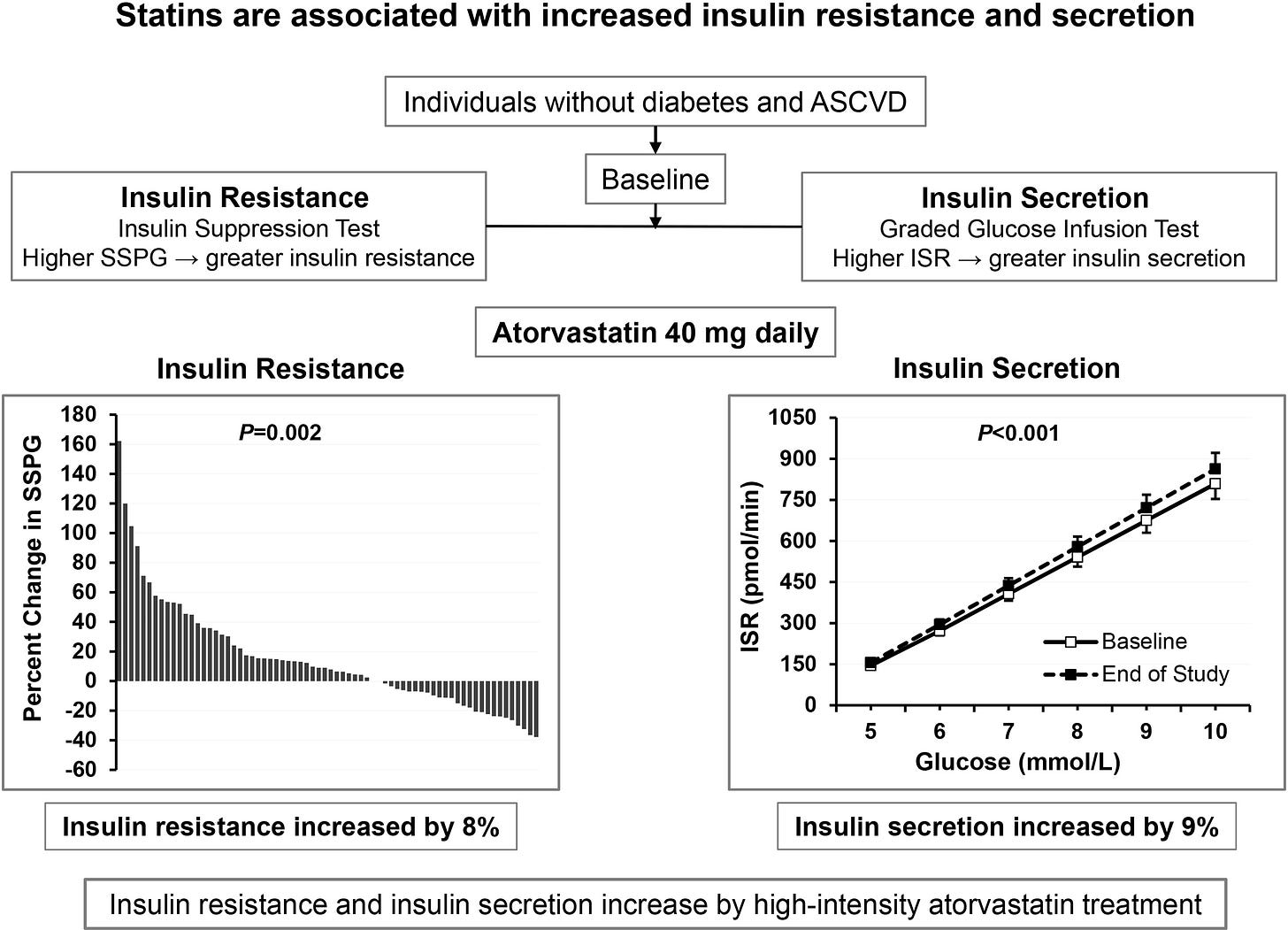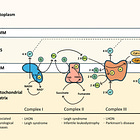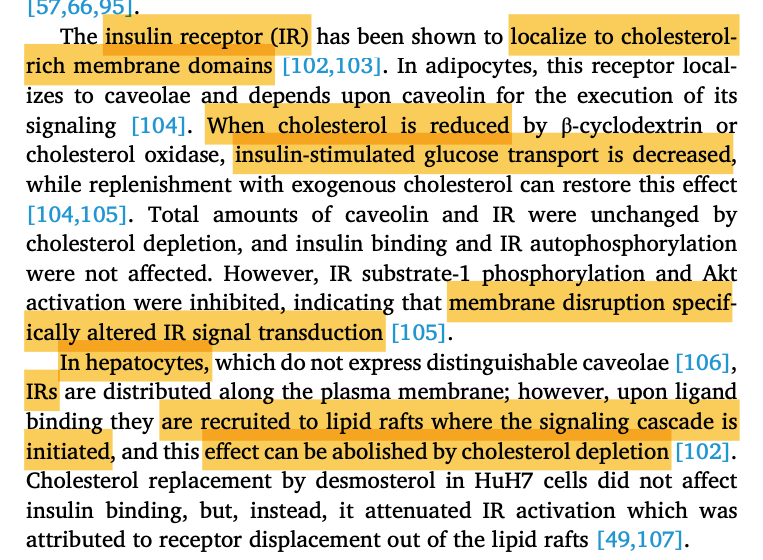How Statins Cause Diabetes.
This cholesterol-lowering drug that is handed out like candy, can cause a disease, which itself is a major risk factor for the very thing the drug is trying to prevent.

It is believed by mainstream medicine and science that high cholesterol is a cause of atherosclerotic cardiovascular disease (ASCVD). I believe that cholesterol is the bystander, not the cause.
ASCVD is an umbrella term that includes: coronary artery disease (heart disease), cerebrovascular disease (brain disease), and peripheral artery disease (disease of members distant to the heart).
Amongst people with Type 2 Diabetes Mellitus (T2DM), ASCVD is the leading cause of disease and death. Why?
Because chronic exposure to high blood sugar and insulin resistance impacts many mechanisms which lead to ASCVD:
Formation of advanced glycation end-products - sugar attaching itself to proteins, as measured by Hemoglobin A1c
Oxidative stress
Chronic inflammation of blood vessels
The relationship between ASCVD and T2DM is so strong that most doctors will tell you that having T2DM is a risk equivalent of ASCVD. What does that mean?
If you have T2DM, your risk of having stroke or heart disease is similar to those with diagnosed ASCVD.
The point I’m trying to make here is: T2DM is really really bad.
If you give a patient something that’s causing T2DM, it may be time to return your medical license.
On Statins
I don’t want to spend too much time getting into the nitty gritty of why statins suck and why cholesterols is good for you. These days there’s a lot of content out there discussing this, and I can see that the tide is turning even amongst mainstream physicians. Painfully, and slowly…but I think it’s turning.
In fact, the tide is turning about as fast as pharma is coming up with the latest new cholesterol-lowering agents that they want to market and profit from - like PCSK9 inhibitors.
Before we go on with this discussion, I want you to appreciate the following:
Statins are just a cute name given to a class of drugs that are so harmful, they are simultaneously being researched for use as chemotherapy and pesticide
This is how important the enzyme that statins block are to life and living
Statins block an enzyme called HMG-CoA Reductase
HMGCR is an enzyme in the mevalonate pathway
The Mevalonate pathway produces isoprenoids and cholesterol-derived compounds that are essential for diverse biological functions
Thus, mevalonate is the precursors to thousands of molecules integral to normal physiologic function, including:
Vitamin K
Ubiquitin
Heme A (component of cytochrome C oxidase)
Coenzyme Q10
Phosphatidylcholine
Farnesyl Pyrophosphate (FPP) and Geranylgeranyl Pyrophosphate (GPP)
We haven’t even talked about the consequences of blocking the production of the various cholesterols in your standard lipid panel test - including LDL.
The crux is this:
If your objective is to lower LDL cholesterol, why would you inhibit an enzyme that is responsible for producing almost every cholesterol-derived substance in the body?
Statins and New-Onset Diabetes
I’m going to make this rather simple.
First, we need to establish if statin-use is associated with new-onset diabetes.
Before I share the research, we need to establish how diabetes is diagnosed.
T2DM is a disease of blood-sugar dysregulation that is believed to be caused by insulin insensitivity or insulin resistance. Basically, the body has exhausted its insulin supply to the degree that our cells are less responsive to insulin.
T2DM can be diagnosed by:
Fasting blood sugar
Oral glucose tolerance test
Fasting insulin level
Insulin resistance panel
HOMA-IR (Homeostasis model assessment of insulin resistance)
Ok, now unto the first question:
Does Statin-Use Cause Insulin Resistance?
Cai et al performed a meta-analysis of 95 102 non-diabetic people in randomized clinical trials using statins to lower LDL-cholesterol.
They found that those who achieved lower LDL-cholesterol targets using statin therapy had increased odds of developing new-onset diabetes. The lower their LDL-c, the higher the odds of developing diabetes.
Sattar et al performed a similar meta-analysis, including clinical trials of >1000 participants, totaling 91 140 participants.
They found that statins were associated with an 9% increase risk for new-onset diabetes. Based on their analysis, statins cause one new case of diabetes for every 255 people treated across 4 years.
To put that finding into perspective, in people with known heart disease (ASCVD), statins taken for 5 years results in:
1.2% lower chance of death
2.6% lower chance of heart attack
0.8% lower chance of stroke
Whereas Sattar et al find that in 4 years there is a 100% chance of new-onset diabetes.
Note: if you don’t have established ASCVD, then there is no statistical benefit in taking statins.
Koh et al found that all doses of atorvastatin (10, 20, 40 and 80 mg) resulted in:
increased fasting plasma insulin
increased Hemoglobin A1c
decreased insulin sensitivity (i.e. insulin resistance)
But, wait…there’s more
If you need more evidence that the target enzymes of statins (and PCSK9 inhibitors) are the cause of insulin resistance, you can find it here:
The above is a study that looked at genetic variants in the enzymes PCSK9 and HMGCR, the respective targets of lipid-lowering drugs PSCK9 inhibitors and Statins.
The variants were scored based on degree of difference from “wild type” or normal genetic sequence of these 2 enzymes. They looked at various end-points. One of which was risk of diabetes.
Direct from their paper:
Participants in the group with higher PCSK9 scores had a 6.1% higher risk of diabetes than those in the group with lower PCSK9 scores (odds ratio, 1.06; 95% CI, 1.02 to 1.11)…This effect was very similar to the 12.7% increase in the risk of diabetes per 10 mg per deciliter decrease in the LDL cholesterol level that was associated with HMGCR variants (odds ratio, 1.13; 95% CI, 1.06 to 1.20) (Figure 3). Both the PCSK9 and HMGCR genetic scores appeared to have dose-dependent effects on the risk of diabetes. When present together in the 2×2 factorial analysis, the PCSK9 and HMGCR variants had additive effects on the risk of diabetes (Figure 2B).
How Statins Cause Diabetes
Now that we’ve established that statins do cause diabetes, we should consider how it causes diabetes.
There are many ways to skin this cat, and very likely that there are multiple pathways which are contributing to the increasing insulin resistance we observe in people who take statins.
This is not at all surprising, especially considering how physiological broad the impact of HMG-CoA Reductase is.
First, we can take a strictly metabolic perspective here.
This is the electron transport chain within our mitochondria. This is the final stage in processing of electrons obtained from food, into usable energy in the form of ATP.
You will notice that there are proteins in this chain which we have already discussed, including Coenzyme Q10 (labelled Q) and Cytochrome Oxidase C (Cyt c).
What do you think will happen to the functioning of your mitochondria if you start to take a drug that blocks the production of these proteins which are integral to energy production?
Physiologically, the consequences are various. All of them converge on worsening oxidative stress, and a disconnect between energy consumption and energy harvesting.
Another Mechanism
Related to the ubiquity of cholesterol in cellular function, is another consequence of low cholesterol. One of the principle structural locations of cholesterol is in our cell membranes. In the membrane, cholesterol serves several functions.
The linked article above discusses many of the mechanisms by which the cell cycle depends on the mevalonate pathway. One of these is the function of insulin receptors.
A Final Consideration
I alluded to this slightly in the first mechanism, but consider this:
You go to a doctor, he assesses your risk of various ailments including ASCVD and metabolic syndrome with his battery of tests.
He then tells you to take a statin (or, frankly, any other drug)…and you will be ok! It will “reduce your risk!”
Like a good patient, you take the drug as instructed.
You feel better, because you listened to your doctor and are doing what you can to improve your health by taking this drug (or drugs).
The lifestyle choices that led you here become less of a burden on your psyche. So much so, that you start throwing caution to the wind as it relates to your subsequent decisions.
Little by little, you drift. Add insult to injury. Accelerate the development of insulin resistance.
Of coures, this is purely behavioral and doesn’t account for all the cases of new-onset diabetes in people taking statins. But, it is probably one consideration.











With so much evidence that statins aren’t a good idea, it’s a shame that the brainwashing is so strong. Forwarding your article to a few people in case more words will help their decision making parts start working.
American Murder Association